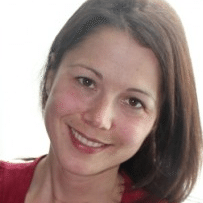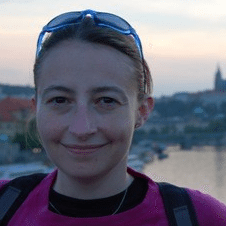
Donna Millington
What was your diagnosis? Papillary Thyroid cancer- Stage II
Hometown: Halifax, NS, but currently living in Calgary, AB
What schools did you attend? Dalhousie University, University of Calgary
What’s your occupation? I’m a special education teacher—never a dull moment!
What is your career goal?
I was half way through a Master’s in School Psychology when I got diagnosed. I’m currently on medical leave from the university, and trying to decide if I’d like to change into a more counseling-focused role, perhaps to work with families affected by illness.
Your cancer experience:
How did you find out you were sick? What led to the diagnosis?
During a routine physical my family doctor noticed a lump in my neck as she was patting me down. I went for an ultrasound, and before I had even left the clinic I had a Fine Needle Aspiration.
What year was it? What was your age at the time?
I was diagnosed mid December 2010 (Merry Christmas to me!) at age 32.
In which hospital were you treated?
I had a total thyroidectomy last month at Foothills Hospital in Calgary, Alberta.
What were your first thoughts when diagnosed?
I was a little nervous after they decided to do the FNA at the clinic, but the fear set in when I got the phone call from my family doctor’s office saying come in a couple days to the last appointment of the day, and bring your husband with you (I failed to mention that we had recently separated). I spent that night wondering if it was the mammogram or the FNA on the thyroid that was the problem. I also spent a lot of time consulting with “Dr. Google” about thyroid cancer. I was wondering how I would get through the next two days, which was how long I had to wait to speak with my family doctor.
As fate would have it though, I received a phone call the next day from a receptionist regarding my referral. This poor receptionist was left slightly flabbergasted when I had to ask what the referral was regarding. Hearing the words “surgeon,” “oncologist,” and “Tom Baker Cancer Centre” put all the pieces of the puzzle in place. The family doctor confirmed the diagnosis later that day, but after bawling on the phone in my car (I was parked—don’t worry!) to the receptionist at the surgeon’s office, the news coming from my family doctor seemed rather anti-climactic.
How did your family react?
The hardest part was telling my family. They live in Halifax, so I had to tell them over the phone. My mom started praying, which I have to admit scared me even more. They were crying while reassuring me that everything would be okay, as I was doing the same.
How did your friends react?
My friends were amazing! While I had never doubted their ability to support me, I would not have expected such an overwhelming level of support. I was also surprised by how people I wasn’t especially close to offered to help. Although I wouldn’t consider cancer a gift, one positive aspect of it is how it can bring people together.
What did your treatment consist of?
I recently (one month ago as of creating this profile) had a total thyoidectomy, and had 25 lymph nodes in my neck removed. I lost a couple parathyroid glands during surgery (we have four—whew!) and the other two got pretty beat up, so my calcium is still low. I spend a week in the hospital instead of the usual couple of days due to my low calcium and was actually on a calcium drip for about five days after surgery. I’m now started on my Synthroid (a thyroid replacement hormone), which I’ll need to stay on for the rest of my life, as well as some heavy duty calcium.
Describe the non-medical side
Thyroid cancer is a funny thing. I don’t know if anyone else has experienced this, but there is almost a sense of guilt compared to other cancer patients for having the “good” cancer. Sometimes I feel like a farce calling myself a cancer survivor because I haven’t had to go through chemo, and I don’t have to worry about hair loss or loss of fertility. Yet I feel somewhat of a disconnect sometimes when compared to my friends, none of whom have ever had to hear phrase “ you have cancer,” and then deal with things like facing their own mortality when it seems like life is just getting started. It’s lonely sometimes. Yet at other times, when I get messages of support from people I haven’t been in touch with for years, I feel like I have the whole world behind me.
What is your current medical status?
Is “waiting” considered a medical status? Although they think they got all the cancer with the surgery, I am in the process of getting my TSH levels tested, my chest x-ray done, and deciding whether or not I should go ahead with the RAI. To glow, or not to glow, that is the question.
What was the toughest part of your challenge?
I think overall, the hardest part was a sense of loss of control. I’m a planner and a bit of a control freak by nature, and it right now there are so many things that are out of my control. There are also moments now and then when, despite the stats and high survival rates, I get still get scared.
What was the best part of your challenge?
Although it sounds clichéd, but I have to say it brought about a new appreciation for life. I got my diagnosis three months after my marriage ended, so it offered a great distraction from all of that, and helped put things in perspective. I discovered a strength within me that I thought I had lost. And on a lighter note, I got a t-shirt made that said “failed decapitation” that I wore around the hospital post surgery. For as many tears as I have shed, I have also learned to slow down, and to laugh more often. I found the quote “He who laughs, lasts” on one of the numerous cancer websites I came across on my middle of the night Google searches, and have tried applying to my life every day.
What really motivated you to keep going while you were sick?
I have a stubborn streak a mile long, so I don’t deal well with being told I “can’t” do something.
What lessons or messages have you taken away from your experience?
Slow down, lean on people, eat good food, laugh lots, and stop putting things off.
What are some preventative measures that people can take to lower their risk of having an experience like yours?
Unfortunately, with thyroid cancer, there doesn’t seem to be much you can do in terms of preventative measures. While it offers obvious advantages, leading a healthy lifestyle doesn’t necessarily prevent this type of cancer.
Did you attend any support groups during your challenge?
I’m currently in the process of trying to connect with other thyroid cancer survivors in the Calgary area, and attempting to organize a charity run/walk to raise awareness about this type of cancer. Even though it’s still in the preliminary stages, it’s given me the opportunity to connect with other survivors. I didn’t realize how much I needed that connection until it started to happen.









